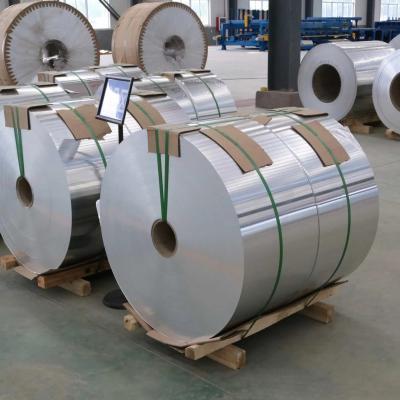Categories
Tags
-
#Insulation Aluminium Coils
#Thick Aluminum Sheet
#2024 Aluminum Plate
#Aluminium Products Supplier
#5052 Aluminium Foil
#Household Aluminium Foil
#Color Coated Aluminium Circles
#5052 Aluminum Circle
#Aluminium Circles
#Aluminum Trim Coil
#Aluminum Cookware
#Web Guide Actuators
#Non-Stick Coating Technologies in Aluminium Cookware
Archives
5052 Aluminium Foil in Electrical and Thermal Conduction
-
Aluminium has long been prized for its ability to conduct electricity and heat effectively while remaining lightweight and corrosion-resistant. Among its many alloys, 5052 aluminium foil stands out due to its unique combination of conductivity, strength, and environmental resistance. In this blog, we will explore why 5052 aluminium foil is a preferred choice for electrical and thermal conduction applications.
Electrical Conductivity
While pure aluminium has higher electrical conductivity than most alloys, it lacks strength and durability for industrial use. 5052 aluminium foil, an aluminium-magnesium alloy, balances conductivity with mechanical stability.
Performance in Electrical Applications:
5052 aluminium foil provides sufficient electrical conductivity for many medium-voltage and low-voltage applications. Its corrosion resistance makes it particularly useful in environments exposed to moisture, salt spray, or chemicals, where pure aluminium or less resistant alloys would degrade quickly.
Practical Uses:
It is widely used in cable shielding, electronic packaging, and capacitor housings, where reliability and longevity are crucial. Its fatigue resistance ensures that electrical components maintain integrity under repetitive stress or vibrations.
Thermal Conductivity
Heat transfer efficiency is another vital property of aluminium. 5052 foil maintains good thermal conductivity while offering enhanced strength and corrosion resistance.
Heat Dissipation:
This alloy is often used in heat exchangers, HVAC systems, and cooling fins for electronics. Its ability to resist corrosion in humid or marine environments makes it especially valuable in outdoor and industrial cooling applications.
Food and Packaging Industry:
In packaging, 5052 foil serves dual roles: maintaining product integrity and aiding thermal regulation during storage or transport. Its ability to withstand temperature variations without losing form makes it a reliable choice.
Strength and Durability Advantages
One of the biggest advantages of 5052 over other foils lies in its mechanical durability. Electrical and thermal systems often experience vibrations, pressure changes, and environmental stress. The magnesium content in 5052 enhances tensile strength and fatigue resistance, ensuring long-term stability in high-demand applications.
Corrosion Resistance in Conduction Applications
Electrical and thermal systems are frequently exposed to moisture and environmental challenges. 5052 aluminium foil excels here—it withstands marine environments, chemical exposure, and atmospheric corrosion better than many other aluminium alloys. This makes it the preferred material for outdoor wiring systems, marine electrical equipment, and industrial cooling units.
Comparison with Other Alloys
While pure aluminium and alloys like 3003 have slightly higher conductivity, they compromise in strength and corrosion resistance. 5052 strikes an ideal balance—its conductivity is sufficient for most electrical and thermal applications, while its enhanced durability ensures longer operational lifespans.
Conclusion
5052 aluminium foil is more than just a conductor—it is a reliable, durable, and versatile solution for industries that demand both electrical and thermal efficiency. Its ability to combine good conductivity with superior strength and corrosion resistance makes it indispensable in modern applications ranging from electronics to HVAC systems. For engineers and manufacturers seeking a material that ensures long-term reliability under challenging conditions, 5052 aluminium foil stands out as a smart choice.
